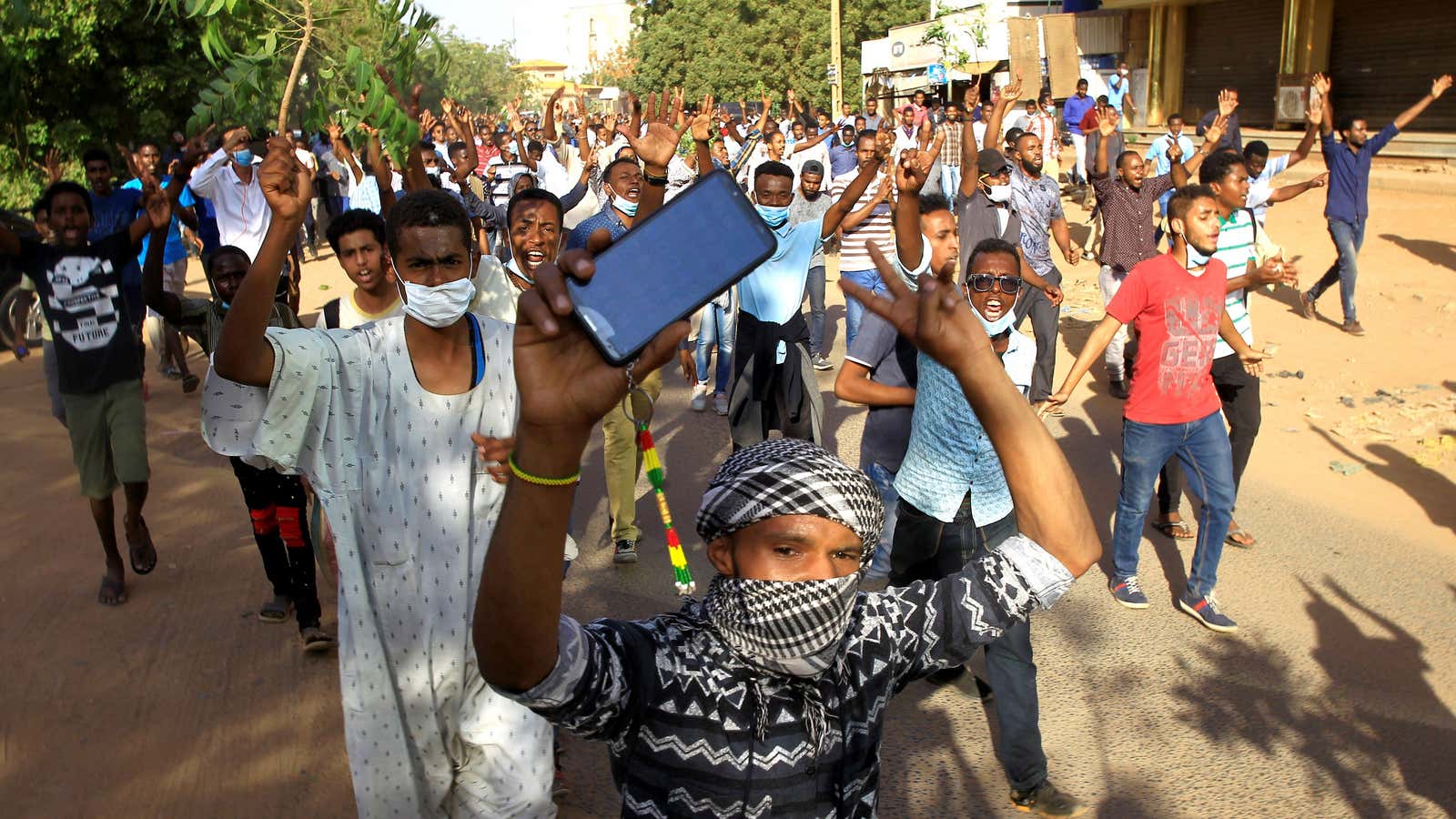Sudan’s government is looking to the internet as one way to quell swelling protests all over the country.
For over a week now, protesters in major cities have demonstrated against rising bread prices besides soaring inflation and shortages in fuel. To remedy the dire economic and political situation, marchers have called on president Omar al-Bashir, who has ruled over the nation for almost three decades, to resign.
At least 19 people have so far been killed and 200 others injured in the clashes, according to officials, while Amnesty International put the number of dead demonstrators at 37.
Besides introducing a state of emergency and arresting opposition figures, the northeastern African state has also shut down social media access on mobile networks. Data collected by digital advocacy group NetBlocks on Dec. 21 shows varying attempts to block platforms including Twitter, WhatsApp, Facebook, and Instagram on mobile networks.
The internet was blocked on key telecom companies including MTN Sudan, Zain Sudan, Kanartel, and Sudatel. The interruption to these four services is expected to cost the economy over $7.5 million per day, according to estimates calculated through NetBlocks Cost of Shutdown Tool (COST).
Digital rights advocates have decried the internet block, saying it against the right to access and share crucial information. Khartoum cut off internet services back in 2013 amid similar anti-government protests.
“The Sudanese authorities seem to have decided to curb access to social media to contain the crisis, and restrict the information available about what’s going on in the country,” said the advocacy director with digital rights group Access Now, Melody Patry. “This attempt of censorship and information control must stop.”
